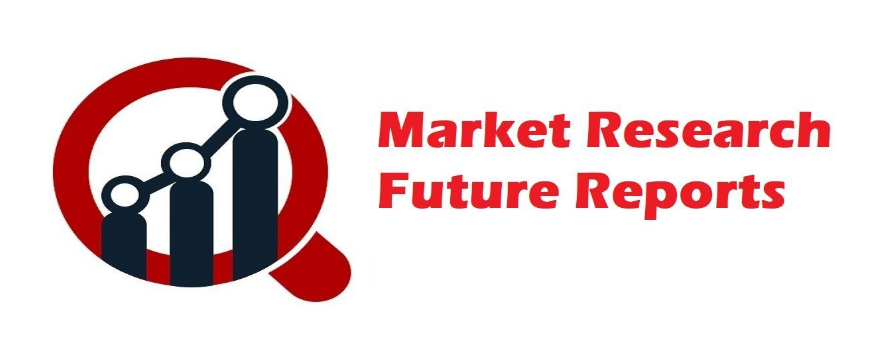Healthcare Chatbots Market Size Was Valued At Usd 0.2 Billion In 2022. The Healthcare Chatbots Market Industry Is Projected To Grow From Usd 0.24 Billion In 2023 To Usd 0.99 Billion By 2032, Exhibiting A Compound Annual Growth Rate (Cagr) Of 19.5% During The Forecast Period (2023 - 2032).
In today's fast-paced world, technology continues to reshape industries, and healthcare is no exception. Healthcare chatbots are emerging as a transformative tool, revolutionizing the way patients interact with healthcare providers. These intelligent virtual assistants offer round-the-clock support, personalized guidance, and streamlined communication, ultimately enhancing the efficiency and accessibility of healthcare services.
Market Overview:
The healthcare landscape is evolving, with an increasing emphasis on patient-centered care and digital solutions. As patients seek convenient and immediate access to healthcare information and services, the demand for healthcare chatbots is on the rise. These AI-powered bots serve as virtual companions, guiding patients through their healthcare journey from appointment scheduling to post-care follow-ups.
One of the primary drivers of the healthcare chatbots market is the growing prevalence of chronic diseases and the subsequent need for continuous monitoring and support. Chatbots equipped with predictive analytics can help individuals manage chronic conditions by providing personalized health recommendations and reminders for medication adherence.
Moreover, the COVID-19 pandemic has further accelerated the adoption of healthcare chatbots. With social distancing measures in place, patients are turning to virtual consultations and remote monitoring solutions. Chatbots play a crucial role in triaging patients, answering COVID-related queries, and alleviating the burden on healthcare hotlines and facilities.
Transforming Patient Engagement:
Healthcare chatbots are redefining patient engagement by offering seamless communication channels between patients and providers. These bots are designed to interact conversationally, understanding natural language queries and providing relevant responses in real-time. Patients can seek medical advice, schedule appointments, and receive personalized health recommendations without the need for human intervention.
Furthermore, healthcare chatbots enhance patient education by delivering accessible and digestible information on various health topics. From explaining medical procedures to clarifying medication instructions, chatbots empower patients to make informed decisions about their health. By promoting health literacy and self-management, these virtual assistants contribute to improved patient outcomes and satisfaction.
Enhancing Operational Efficiency:
In addition to improving patient experiences, healthcare chatbots offer significant benefits for healthcare providers and administrators. By automating routine tasks such as appointment scheduling, patient registration, and billing inquiries, chatbots streamline administrative processes and reduce administrative overhead. This allows healthcare staff to focus on more complex and value-added activities, ultimately increasing operational efficiency and productivity.
Moreover, chatbots can facilitate proactive patient outreach and population health management initiatives. By analyzing patient data and identifying at-risk populations, chatbots can send targeted health reminders, encourage preventive screenings, and support chronic disease management efforts. This proactive approach not only improves patient outcomes but also reduces healthcare costs associated with preventable illnesses and hospital readmissions.
Market Segmentation:
The segmentation of the Healthcare Chatbots Market comprises several key aspects. In terms of components, it encompasses software and services. Deployment types include on-premise and cloud-based solutions. Application outlook covers symptom checking & medication assistance, along with appointment scheduling & medical guidance. Lastly, end users are categorized into patients, healthcare providers, and insurance companies. This comprehensive segmentation provides a nuanced understanding of the diverse facets within the healthcare chatbots domain, catering to various stakeholders in the industry.
Key Players:
The Healthcare Chatbot Market players Is Spearheaded By Notable Companies Such As Sensely Inc. From The U.S., Md From The U.K., Buoy Health Inc. Also From The U.S., Infermedica Based In Poland, Pact Care Bv From The Netherlands, And Healthtap Inc. From The U.S. Other Significant Players Include Babylon Health From The U.K., Ada Health Gmbh From Germany, Woebot Labs Inc. From The U.S., And Com Inc., Among Various Others Contributing To This Dynamic Sector.
Regional Analysis:
The regional outlook for healthcare chatbots spans across various continents. In North America, both the United States and Canada showcase significant interest and development in this technology. Moving to Europe, countries such as Germany, France, the United Kingdom, Italy, and Spain are actively exploring healthcare chatbots. In the Asia-Pacific region, China, Japan, India, South Korea, and Australia are among the frontrunners in adopting this innovation. The rest of Asia-Pacific also shows growing interest. Lastly, the Middle East, Africa, and Latin America are emerging regions in the integration of healthcare chatbots.
The Future of Healthcare Chatbots:
As technology continues to advance, the future of healthcare chatbots market growth looks promising. Advancements in natural language processing (NLP), machine learning, and predictive analytics will enable chatbots to offer more sophisticated and personalized healthcare experiences. Moreover, the integration of chatbots with other digital health technologies such as wearable devices and telemedicine platforms will further enhance their capabilities and reach.
About Related Reports:
Type-1 Diabetes Treatment Market
Active Pharmaceutical Ingredients Market


